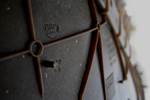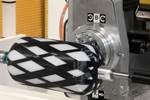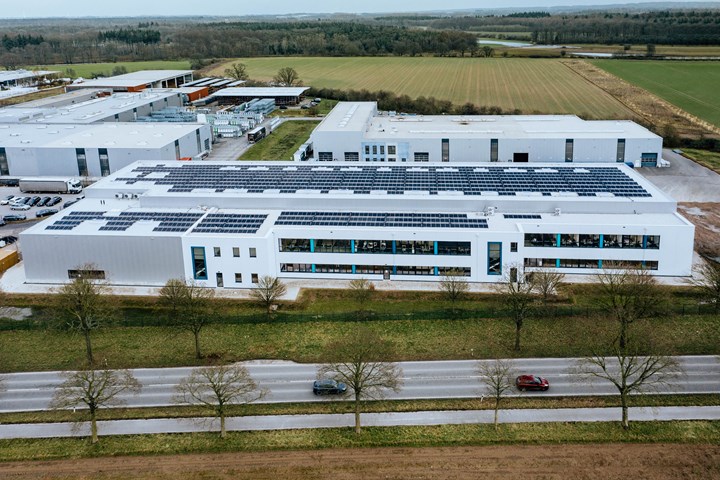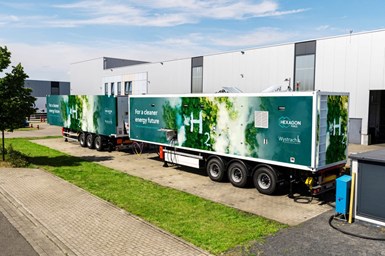Hexagon Purus grows Type IV capacity with opening of manufacturing hub in Weeze
The fourth facility to open in 12 months, expansion of Hexagon Purus’ primary facility in Germany will enhance its distribution, refueling and stationary storage systems availability.
Hexagon Purus (Oslo, Norway) has expanded its primary manufacturing facility in Weeze, Germany, for the engineering and production of hydrogen infrastructure products including systems for distribution, refueling and stationary storage. The growth of this facility in Weeze follows the company’s new manufacturing sites for hydrogen cylinder production in Kassel (Germany) in September 2023, battery systems in Kelowna (Canada) in April 2023 and hydrogen cylinders in Westminster (Maryland, U.S.) in January 2023.
Hexagon Purus is ramping up its capacity to meet growing customer demand for hydrogen infrastructure solutions as the world transitions to clean energy sources (read “Hexagon Purus extends agreement for hydrogen distribution systems, raises 1 billion NOK”). The existing 11,000-square-meter state-of-the-art facility in Weeze is now expanded to 16,000 square meters. The capacity expansion approximately doubles Hexagon Purus’ annual production capacity of Type IV high-pressure hydrogen infrastructure solutions.
“We are proud to open our expanded manufacturing site in Weeze, our fourth to open in the last 12 months,” says Michael Kleschinski, EVP mobility and infrastructure. “Hydrogen storage and distribution is a vital part of the hydrogen ecosystem and has been a major growth driver for Hexagon Purus. We continue to take market share for storage and transport of hydrogen of all colors from incumbent solutions due to the competitive total cost of ownership of our Type IV transport and storage solutions. We expect this trend to continue as green hydrogen gradually replaces gray and higher capacity improves our ability to meet growing demand.”
For other related announcements, read “Hexagon Purus secures dual-approved hydrogen system order” and “Ford Trucks chooses Hexagon Purus to equip FCEV heavy-duty truck.”
Related Content
-
Hexagon Purus Westminster: Experience, growth, new developments in hydrogen storage
Hexagon Purus scales production of Type 4 composite tanks, discusses growth, recyclability, sensors and carbon fiber supply and sustainability.
-
Cryo-compressed hydrogen, the best solution for storage and refueling stations?
Cryomotive’s CRYOGAS solution claims the highest storage density, lowest refueling cost and widest operating range without H2 losses while using one-fifth the carbon fiber required in compressed gas tanks.
-
Update: THOR project for industrialized, recyclable thermoplastic composite tanks for hydrogen storage
A look into the tape/liner materials, LATW/recycling processes, design software and new equipment toward commercialization of Type 4.5 tanks.















